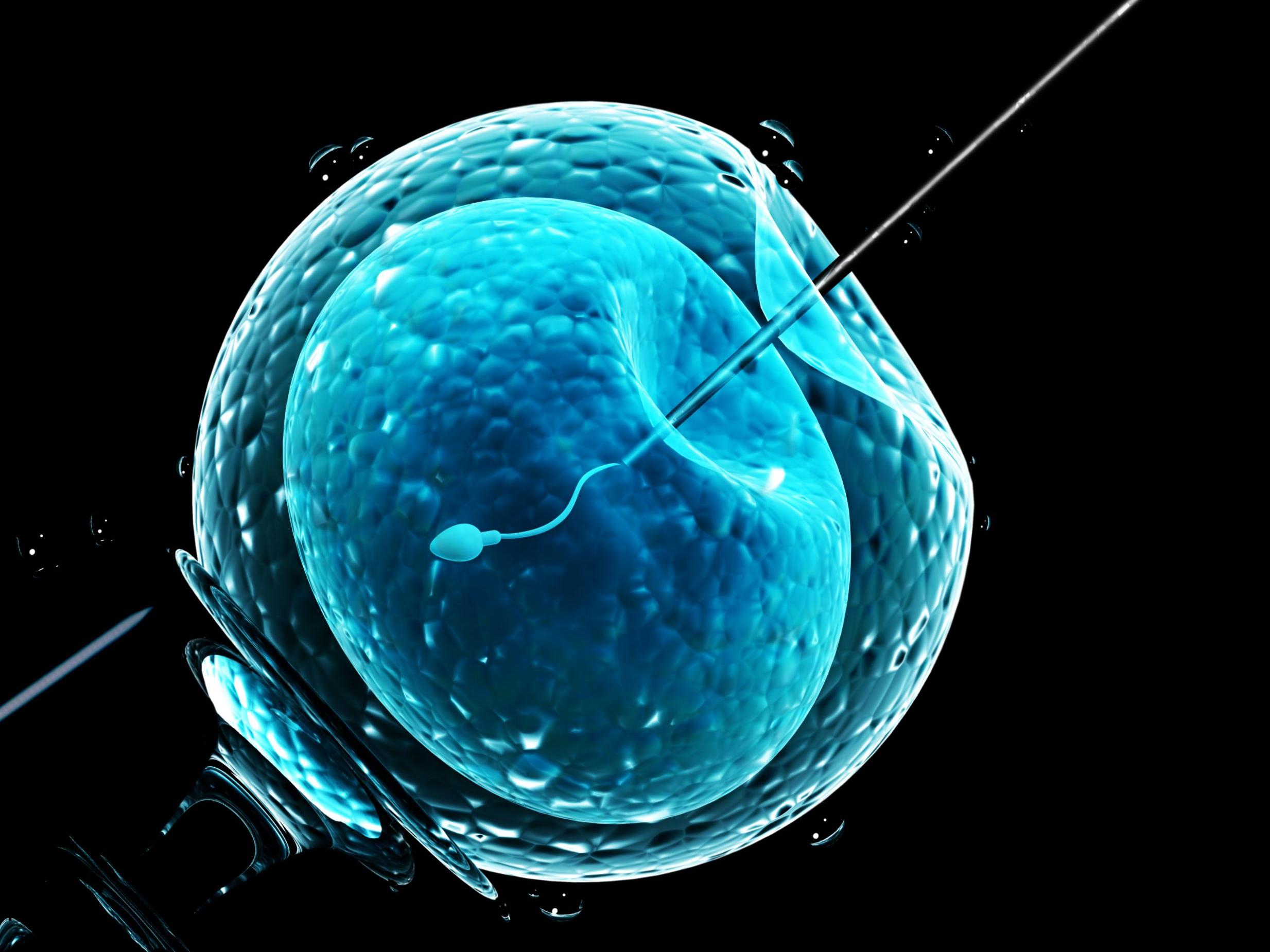IVF add-on sold to desperate couples may lower chances of having a baby by a third, study says
Calls to review 'opportunist' clinics as just 23.4 per cent of couples who pay £1,000 extra for intracytoplasmic sperm injection had baby, compared to 36.2 per cent who had standard IVF

Your support helps us to tell the story
From reproductive rights to climate change to Big Tech, The Independent is on the ground when the story is developing. Whether it's investigating the financials of Elon Musk's pro-Trump PAC or producing our latest documentary, 'The A Word', which shines a light on the American women fighting for reproductive rights, we know how important it is to parse out the facts from the messaging.
At such a critical moment in US history, we need reporters on the ground. Your donation allows us to keep sending journalists to speak to both sides of the story.
The Independent is trusted by Americans across the entire political spectrum. And unlike many other quality news outlets, we choose not to lock Americans out of our reporting and analysis with paywalls. We believe quality journalism should be available to everyone, paid for by those who can afford it.
Your support makes all the difference.“Opportunistic” fertility clinics are offering a £1,000 fertility treatment add-on which may significantly lower their chances of having a baby, according to new research.
By comparing live birth in couples who underwent conventional IVF or intracytoplasmic sperm injection (ICSI), Spanish researchers found success rates were 55 per cent higher with the standard treatment.
ICSI was developed nearly 30 years ago to help men with low sperm count or damage that prevents them fertilising an egg when mixed in a dish in regular IVF.
But leading fertility experts said many clinics in the UK and abroad promote ICSI as a way patients can improve their success, even if the male partner has no fertility issues.
It typically costs around £1,000 extra on top of the £3,500 average cost of IVF.
Researchers from the Centre for Infertility and Human Reproduction in Barcelona examined births from 479 cycles of normal IVF and 477 of ICSI, in couples with healthy male sperm and no previous failed fertility treatment.
It found the live birth rate for IVF was 36.2 per cent in the IVF group, compared to just 23.4 per cent among the ICSI patients.
The researchers said this proves a systematic IVF policy “yields significantly worse reproductive results” and called for a critical review of ICSI use internationally.
These calls were backed up by the chair of the European Society for Human Reproduction and Embryology (ESHRE), whose annual conference the findings were presented at.
“Opportunists see this as an income generator and it has compromised the integrity of reproductive medicine for a long time,” said Dr Roy Farquharson, who also works at Liverpool Women’s Hospital. “You are dealing with a very susceptible group with infertility. They’re exhausted avenues of success, and their confidence is poor - they are willing to spend a lot of money.”
There were 23,822 ICSI cycles performed in UK clinics in 2017, one for every three cycles of IVF, according to data from the Human Fertilisation and Embryology Authority (HFEA).
The regulator was unable to say how many of these ICSI treatments were inappropriate as this data is not collected.
However it is thought around a third of couples who struggle to conceive are as a result of male infertility, while a third are due to female infertility and the rest are a combination.
Professor Allan Pacey, a fertility expert from the University of Sheffield said he was aware of some clinics where virtually every patient was treated with ICSI. What worries me is that there are clinics in the UK where all they do is 90 or 100 per cent ICSI, and it’s the standard.
“The reason that many clinics do 100 per cent ICSI is that because from an advertising perspective it’s perceived that it gives them a technological edge.”
But he added that it could also be a way for clinics to avoid “difficult conversations” that happen with IVF if the eggs fails to fertilise, as ICSI increases the chance of initial success but reduces overall births.
Dr Raj Mathur, secretary of the British Fertility Society, said irresponsible ICSI is likely to be a bigger problem for couples who go overseas for cheaper fertility treatment.
“UK ICSI rates are lower than in other jurisdictions such as the US or the Middle East," he said. “Reassuringly, the HFEA data show that percentage of cycles in the UK in which ICSI is done is stable, indeed has dropped recently.
“In this regards, UK practice is more evidence-based than elsewhere.”
Join our commenting forum
Join thought-provoking conversations, follow other Independent readers and see their replies
Comments